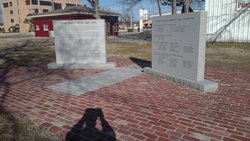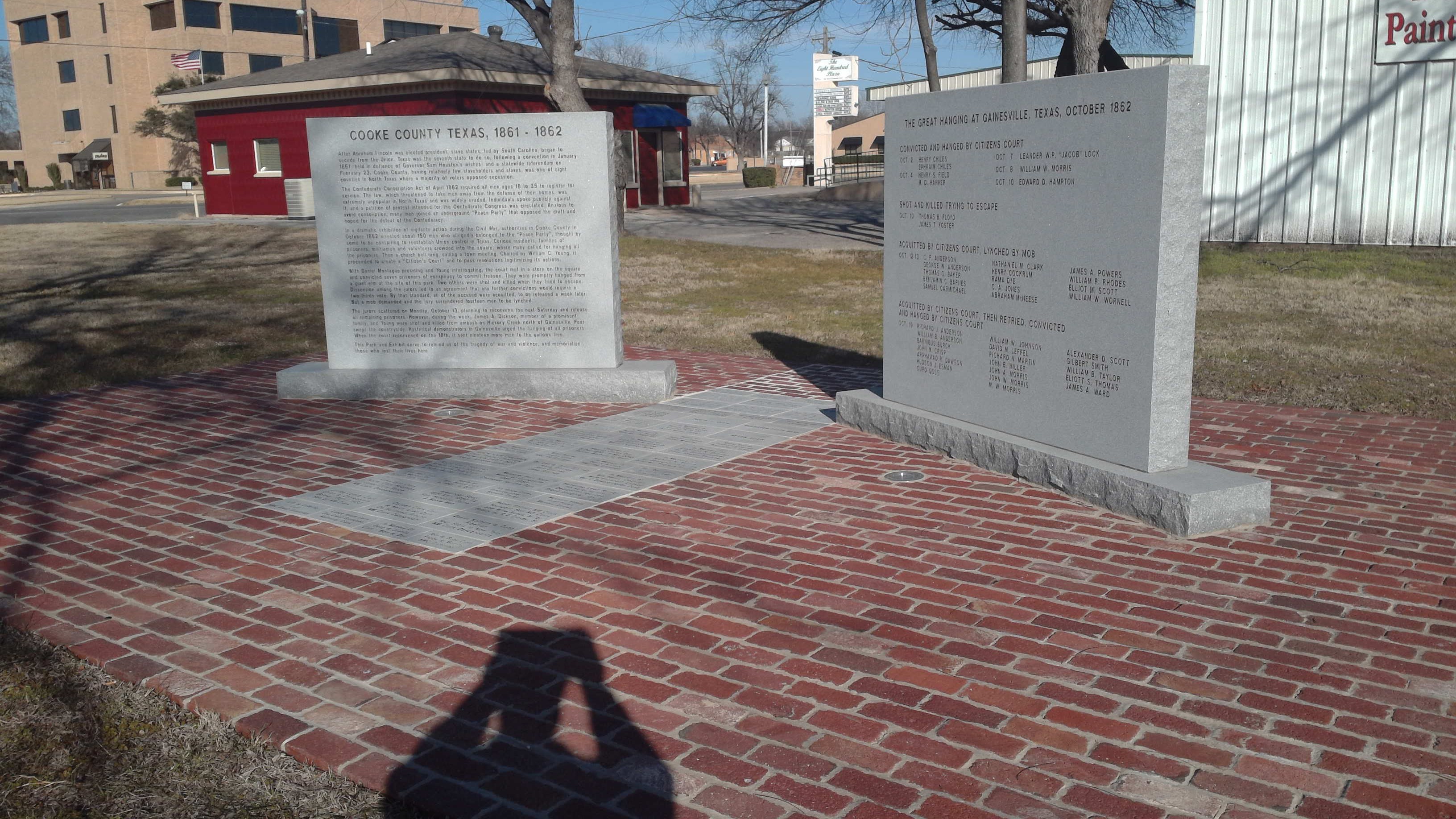The Confederate Citizens Court was not an established legal authority & the slaveholder jurors alone could condemn a person to death. Most of the men killed during this time, were accused of treason or insurrection, but very few had actually conspired against the Confederacy, and many were innocent of the charges for which they were tried.Each family of a Gainesville Hanging victim has a story that needs to be told and shared.
An article was published in the GALVESTON WEEKLY NEWS in 1880 regarding the above hangings."EXECUTION AT GAINESVILLE"
Special Telegrams to the Galveston News
Publication date: May 6, 1880
"On the morning of October 1, 1862, Colonel James G. Bourland, who was one of the largest slaveholders in a county, was sent to who were accused of "insurrection or treason"(not signing up to fight the Union)Bourland, along with Colonel William C. Young of the Eleventh Texas Cavalry, then handpicked 12 jurors to serve on a "citizen's court." Seven of the jurors were slaveholders and Bourland mandated that a conviction did not require a unanimous vote, only a majority vote. Seven of those accused men were sentenced to hang, but before the "court" was finished, 14 more were lynched by an angry mob."
It is to be noted:
Confederate Brigadier General Albert Pike, who was in charge of Indian Territory, was implicated as a Unionist and arrested. Although he was later released, he continued to be regarded with suspicion and served the rest of the war in civilian offices.
To be noted:
General Bourland was also accused of other atrocities, but the Confederate Army took no action concerning them. At the end of the war, he obtained a pardon from President Andrew Johnson, but there is no record that he was ever subjected to a Union court martial. He was also acquited of wrong-doing by a civil court at Gainesville. He died in seclusion, a lonely and broken old man, on Aug. 20, 1879.
The Confederate Citizens Court was not an established legal authority & the slaveholder jurors alone could condemn a person to death. Most of the men killed during this time, were accused of treason or insurrection, but very few had actually conspired against the Confederacy, and many were innocent of the charges for which they were tried.Each family of a Gainesville Hanging victim has a story that needs to be told and shared.
An article was published in the GALVESTON WEEKLY NEWS in 1880 regarding the above hangings."EXECUTION AT GAINESVILLE"
Special Telegrams to the Galveston News
Publication date: May 6, 1880
"On the morning of October 1, 1862, Colonel James G. Bourland, who was one of the largest slaveholders in a county, was sent to who were accused of "insurrection or treason"(not signing up to fight the Union)Bourland, along with Colonel William C. Young of the Eleventh Texas Cavalry, then handpicked 12 jurors to serve on a "citizen's court." Seven of the jurors were slaveholders and Bourland mandated that a conviction did not require a unanimous vote, only a majority vote. Seven of those accused men were sentenced to hang, but before the "court" was finished, 14 more were lynched by an angry mob."
It is to be noted:
Confederate Brigadier General Albert Pike, who was in charge of Indian Territory, was implicated as a Unionist and arrested. Although he was later released, he continued to be regarded with suspicion and served the rest of the war in civilian offices.
To be noted:
General Bourland was also accused of other atrocities, but the Confederate Army took no action concerning them. At the end of the war, he obtained a pardon from President Andrew Johnson, but there is no record that he was ever subjected to a Union court martial. He was also acquited of wrong-doing by a civil court at Gainesville. He died in seclusion, a lonely and broken old man, on Aug. 20, 1879.
Family Members
Advertisement
Advertisement




